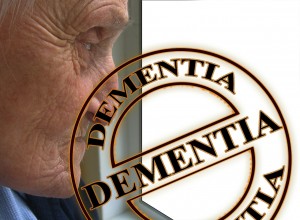Herpes and Alzheimer’s disease are very common, Did you know that about 50-80% of the population in Europe has herpes [1]? And, that 10% of the population over the age of 65, and 50% of the population over the age of 85, have Alzheimer’s disease [3]? That’s pretty crazy, huh?
And what if I told you that there is a connection between the two? This is even more absurd!
But, before I start telling you stories and tales (which are totally true) – we must wonder, what is herpes all about?
Herpes virus 1 and 2, are viruses that infect humans [2]. Herpes-1 is the virus which causes those annoying cold sores and watery blisters on the skin, mainly near the mouth, whereas herpes-2 is the virus which causes genital sores and blisters- both of which can be a total bummer [2,3].
Let me tell you something about herpes: it is one heck of a contagious virus! You wouldn’t want to kiss your girlfriend on the mouth if she has a cold sore. You wouldn’t want to drink from her glass either. And, if that is not enough for you, if a pregnant woman has genital herpes during delivery, her newborn baby may get the disease due to exposure to blisters in the birth canal. And, last but not least, one can catch genital herpes through sexual intercourse [2,3].
First thing’s first- lets say you caught herpes: what’s next? Besides the initial symptoms, the virus knows how to travel to your nerve cells. Once there, it goes into a latent state, which is basically similar to falling asleep. In this state, amazingly, it has the ability to hide from your immune system! How crazy is that? And finally, beware- if you are stressed prior to an exam, or you’ve decided to go sunbathing or tanning at the beach, you may wake that viral demon up, and as a result it will travel back to your skin. This causes an eruption of cold sores on your mouth, or blisters on your genitals, depending on which type of virus you have, and where the virus entered your body [2].
Ok, so now you’re probably asking yourselves – What is Alzheimer’s disease and how is the herpes virus linked to it?
Let’s begin by talking about what Alzheimer’s disease actually is. Are you familiar with how some elderly people become confused and aggressive, have mood swings, forget recent events, and have impaired long term memory? These are all symptoms associated with Alzheimer’s disease. In addition to these symptoms, slowly and gradually, bodily functions are lost, eventually leading to death [4].
Your next question might be: “At what age does Alzheimer’s disease appear?”
Good question! Most often, Alzheimer’s disease is diagnosed in people who are over 65 years [5], while much younger adults may be diagnosed as well [6]. Another interesting fact: some people may live up to 7 years after diagnosis, while others may live for more than 14 years [7].
How is the herpes virus involved?
Over the past 30 years, many devoted scientists explored this subject [8-11,13], and they actually discovered that if you have herpes-1, you have a greater chance developing Alzheimer’s disease. I’d like to say that that’s frustrating, but actually it’s a pretty cool discovery- mainly because it helps us understand a new way to try and cure herpes-1 and Alzheimer’s disease! Two birds in one! It means that we can try to cure or prevent Alzheimer’s disease with antiviral agents, or in other words- let’s destroy herpes- kick him out of his new home he created in our brains.
In terms of treatments against herpes-1, there are conventional medications you may administer orally, as well as medications you may apply on infected body surfaces. However, they aren’t considered very effective according to clinical research [12]. In addition, these medications treat the cold sores and blisters, that is, the symptoms- and not the “sleepy virus” in the brain.
The fact is, these medications don’t do anything to prevent the virus from reactivating and waking up again.
But then, if conventional medications aren’t effective, which antiviral drugs should we use in order to cure herpes? Here’s a thought- how about non conventional medicines-remedies, which are based on natural ingredients?
Apparently they have been clinically proven effective, mainly because they target the virus in its “sleepy” state in the brain and therefore reduce the symptoms as well.

The herpes virus may be a cause of Alzheimer’s disease. Click the photo to learn more about herpes symptoms.
It turns out that there are only two natural antiviral products which have been clinically proven effective: Novirin and Gene-Eden-VIR [12]. The formula of these natural antiviral products was designed to help the immune system target the “sleepy” herpes.
To conclude, many people have herpes (HSV-1 or HSV-2) or Alzheimer’s disease , and that fact, causes low quality of life and high (drug) treatment costs. In addition, there are no treatments which stop or reverse Alzheimer’s Disease progression, although some may temporarily reduce symptoms. Therefore, the fact that there are natural remedies that can reduce herpes symptoms, may be a breakthrough in preventing or delaying the onset of AD symptoms. If proven, this would would be a very siginficant and important discovery.
References:
1. Pebody, R. G., et al. “The seroepidemiology of herpes simplex virus type 1 and 2 in Europe.” Sexually transmitted infections 80.3 (2004): 185-191.
2. Nahmias, André J., and William E. Josey. “Herpes simplex viruses 1 and 2.” Viral infections of humans. Springer US, 1984. 351-372.
3. Whitley, Richard J., David W. Kimberlin, and Bernard Roizman. “Herpes simplex viruses.” Clinical Infectious Diseases (1998): 541-553.
4. Piacentini, Roberto, et al. “HSV-1 and Alzheimer’s disease: more than a hypothesis.” Frontiers in pharmacology 5 (2014).
5. Brookmeyer, Ron, Sarah Gray, and Claudia Kawas. “Projections of Alzheimer’s disease in the United States and the public health impact of delaying disease onset.” American journal of public health 88.9 (1998): 1337-1342.
6. Campion, Dominique, et al. “Early-onset autosomal dominant Alzheimer disease: prevalence, genetic heterogeneity, and mutation spectrum.” The American Journal of Human Genetics 65.3 (1999): 664-670.
7. Mölsä, Pekka K., R. J. Marttila, and U. K. Rinne. “Survival and cause of death in Alzheimer’s disease and multi‐infarct dementia.” Acta Neurologica Scandinavica 74.2 (1986): 103-107.
8. Itzhaki, Ruth F., et al. “Herpes simplex virus type 1 in brain and risk of Alzheimer’s disease.” The Lancet 349.9047 (1997): 241-244.
9. Ando, Yoshinori, et al. “Primary target cells of herpes simplex virus type 1 in the hippocampus.” Microbes and Infection 10.14 (2008): 1514-1523.
10. Ball, M. J. “” Limbic predilection in Alzheimer dementia: is reactivated herpesvirus involved?”.” The Canadian journal of neurological sciences. Le journal canadien des sciences neurologiques 9.3 (1982): 303-306.
11. Imtiaz, Bushra, et al. “Future directions in Alzheimer’s disease from risk factors to prevention.” Biochemical pharmacology 88.4 (2014): 661-670.
12. Polansky, Hanan, and Edan Itzkovitz. “Gene-Eden-VIR Is Antiviral: Results of a Post Marketing Clinical Study.” Pharmacology & Pharmacy 4.06 (2013): 1.
13. Bearer, Elaine L. “HSV, axonal transport and Alzheimer’s disease: in vitro and in vivo evidence for causal relationships.” Future virology 7.9 (2012): 885-899.






